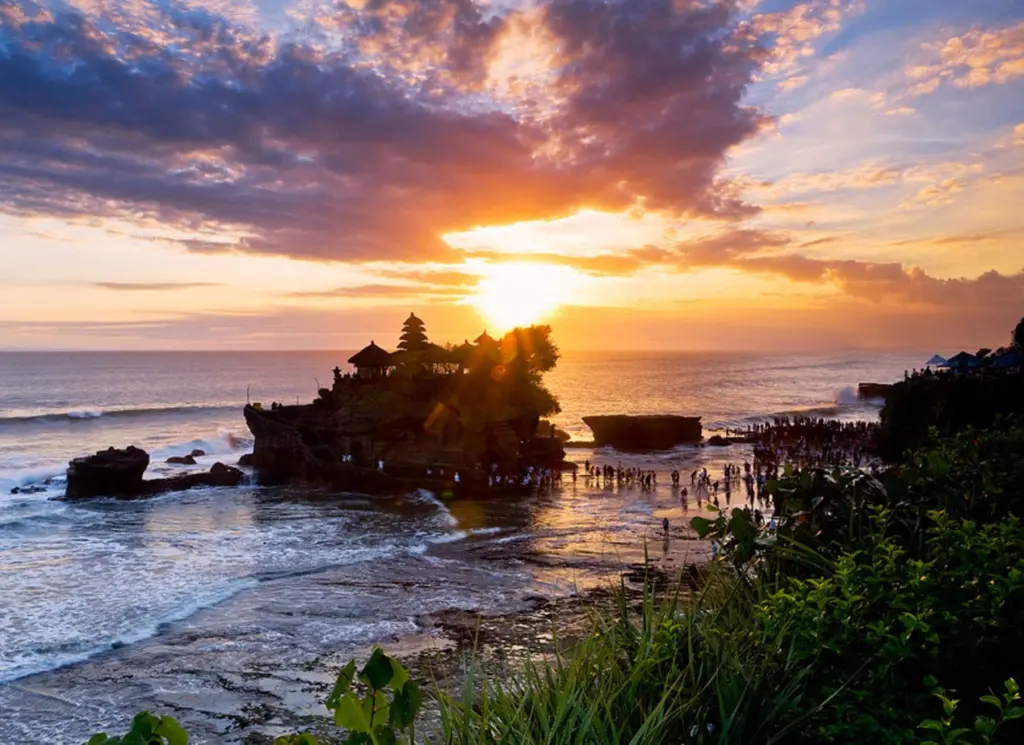Tanah Lot is a Balinese Hindu Temple on the rock and the seawater encircles it when the sea water is tide. It is looked to be adrift in on the ocean and owns the magnificent view of sunset in the late afternoon. There are several points to see this temple with all amazing view. At this temple, we can find other Hindu temples like that make it a holy place in Bali.
There are sea snakes dwell the cave in front of Tanah Lot Temple which you can see with small donation and those of them are believed the holy snake by the local community. Tanah Lot is a popular tourism and one of the best destination to visit in Bali. The best time to visit is 4 pm o’clock, before sunset. The beautiful sunset in Tanah Lot is naturally made perfect with the dazzling silhouette of Tanah Lot Temple. Tanah Lot is also cultural icon for photography and general exoticism.
History
Located in Tabanan, about 20 kilometers from Denpasar, the temple sits on a large off shore rock which has been shaped continuously over the years by the ocean tide.
Tanah Lot is claimed to be the work of the 15th-century priest Nirartha. During his travels along the south coast he saw the rock-island’s beautiful setting and rested there. Some fishermen saw him, and bought him gifts. Nirartha then spent the night on the little island. Later he spoke to the fisherman and told them to build a shrine on the rock for he felt it to be a holy place to worship the Balinese Sea Gods.
The Tanah Lot temple was built and has been a part of Balinese mythology for centuries. The temple is one of seven sea temples around the Balinese coast. Each of the sea temples were established within eyesight of the next to form a chain along the south-western coast. However, the temple had significant Hindu influence. At the base of the rocky island, poisonous sea snakes are believed to guard the temple from evil spirits and intruders. A giant snake purportedly protects the temple, which was created from Nirartha’s scarf when he established the island.
Restoration
In 1980, the temple’s rock face was starting to crumble and the area around and inside the temple started to become dangerous. The Japanese government then provided a loan to the Indonesian government of IDR 800 billion (approximately USD $130 million) to conserve the historic temple and other significant locations around Bali. As a result, over one third of Tanah Lot’s “rock” is actually cleverly disguised artificial rock created during the Japanese-funded and supervised renovation and stabilization program.












